Risk-informed approach saves home gardens in Tonga from disaster
Rising Above Hunga Ha'apai's Ashes
December 13, 2023
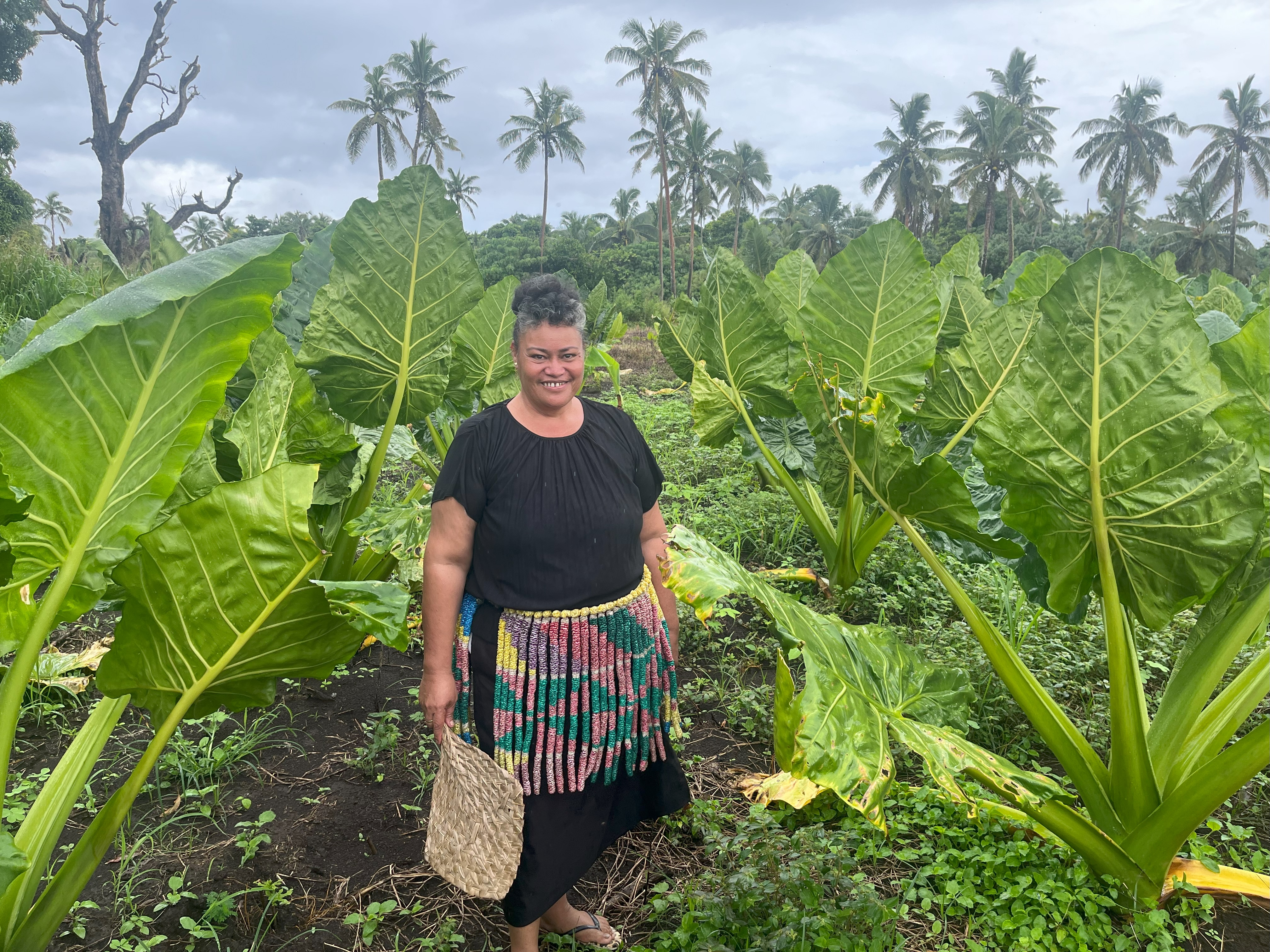
As a result of risk-informed approach to development, market gardens have been moved to higher ground in Tonga.
Navutoka, Tonga - Vegetable gardens established in Navutoka Village on the coastal outskirts of Nuku'alofa, Tonga would have faced certain destruction if the women leading the home garden project had not taken a risk-informed approach to their development.
Cyclone season in Tonga falls between December and April each year and in an effort to avoid risks associated with this, the Free Wesleyan Church (FWC) Women in Development Group decided to delay development of their home garden initiatives to April 2022, despite the project commencing in January.
As a result of this risk-informed approach, the project was not affected by the Hunga Tonga- Hunga Ha'apai volcanic eruption of February 2022, which caused tidal wave surges through the village.
With a new appreciation for the risk-informed process, the group reconvened after the disaster to develop a community narrative on local risks, through collective storytelling. From this consultative engagement with youth, men and the elderly in the community, the group identified further risks that could impact their goal of providing a healthier life for their community through home and community gardens.
Historical events such as the 2018 Category Four, Tropical Cyclone Gita were discussed. This event caused widespread flooding, seawater inundation and damage in Tongatapu. The recollection of events such as this brought to light and helped identify additional risks.
The FWC Women in Development collective understand their coastal home is highly exposed to cyclones and sea-level rise and made an intentional decision to relocate and build 22 home gardens in ‘bush allotments' a safe distance away from sea surges. Those who did not relocate raised their garden beds in a variety of ways to keep them safe from sea water intrusion.
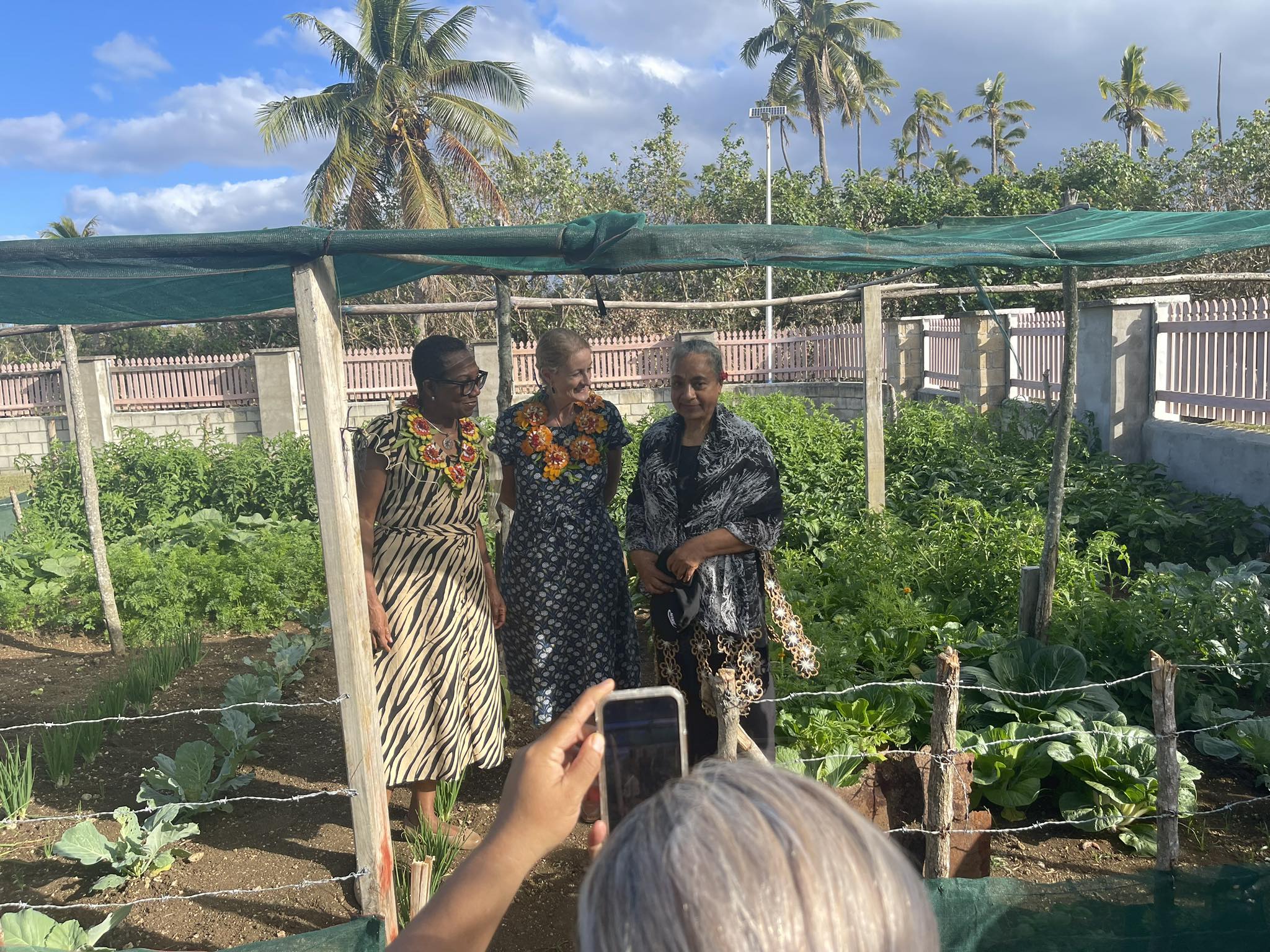
British High Commissioner to Tonga, Her Excellency Lucy Joyce, and Gender Envoy Alicia Herbert visiting the risk informed gardens in October.
The Halalatuituia Family
“My family benefited so much from this project, stayed away from imported foods and have free vegetables every day. It was fun waking up every morning and seeing our gardens in bountiful supply. The children get excited to harvest,” said group member Ms. Alisi Halalatuituia.
“It helped us financially because we have a big family, and my children feel so proud picking the vegetables because it is also their hard work.
“I have to teach them the right time to pick the vegetables. They pick all the tomatoes and capsicum when its still green. They are excited to see what they would see in the shops in their very own gardens,” she added.
A mother to seven children aged from two-years-old to 13, and caregiver to her husband’s parents, Alisi said the garden has now become a family affair, bonding over this newfound interest in gardening and searching for healthy recipes to cook their home grown produce.
After school the children hurry home to make special meal requests and race to pick capsicum, spring onions, herbs and even cabbage for pizza. Alisi said she has taken to TikTok and social media to learn new ways of cooking and preserving her herbs and pickling her surplus vegetables.
The harvest from the vegetable gardens from her bush allotment have helped Alisi to support her family, as her husband is the sole income earner. The surplus of vegetables after sharing in the village is bartered with a local businessman for meat and biscuits.
“Food tastes better when made at home, we add our herbs and spring onions,” she said.
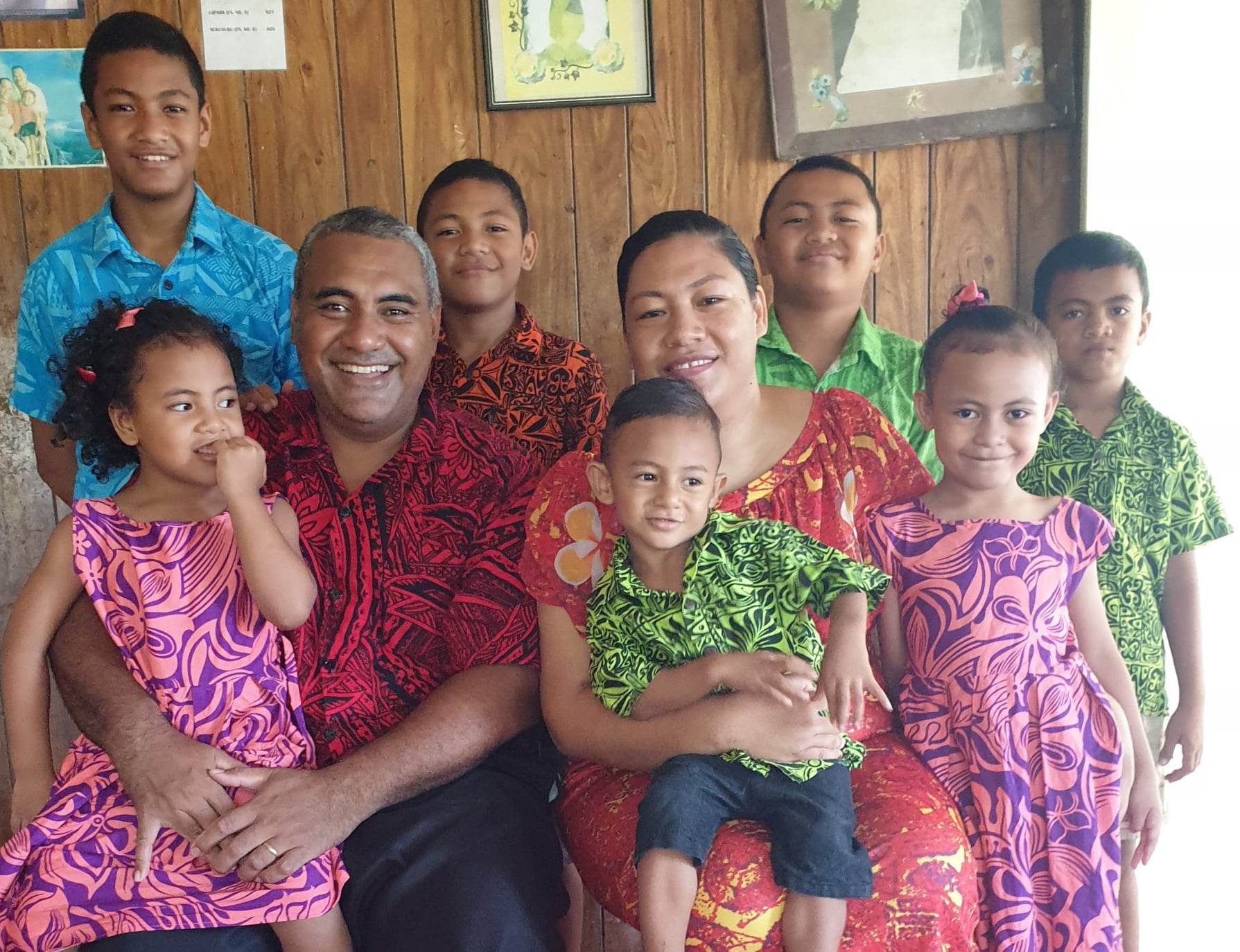
Alisi Halalatuituia and her family, keen vegetable gardeners.
Laughing, she shared “once my husband put the whole basil plant, stem and leaves, he said it was all good. I have made tomato sauce, I have made garlic sauce and tried new dishes for the children, I baked pizza for them, made some delicious soups and even cut the cucumbers and put them in the freezer, when they return from school they have a healthy popsicle, they love it,” said Alisi.
Rising above other challenges, Alisi and other mothers in the group developed their own solutions to promoting healthy lifestyles through home gardening. Apart from access to free healthy vegetables, they were able to strengthen social capital through community interactions and sharing around the gardens. Beyond the skills and knowledge developed, these groups were able to inspire others in the community to build on their vision to provide for their families and community at large.
Resilience and Traditional Knowledge
Lead of FWC Women in Development Group, Ms. Salele Oliveti, said “resilience was key to us, we are truly happy because we worked hard and did not wait for help, these women are agents of change. We have overcome difficulties, the women pushed through for our families and communities. We are not sitting here at home, not waiting for donors. We work and try to supply for the family and help with financial burdens at home.”
Traditional knowledge around planting fruit trees was also revived, and networks created for sustainability. Gardening as a family deepened family relationships and has many benefits apart from instant gratification, accessibility, and convenience.
The project benefits for the 22 families included a strong support system working towards food security, addressing poverty, healthy and tastier food prepared at home, savings from not purchasing processed foods, and increased physical activity which helps reduce the high cases of Non-Communicable Diseases in Tonga. Tonga’s Ministry of Agriculture, Forestry and Fishery provided training to the women on planting methods.
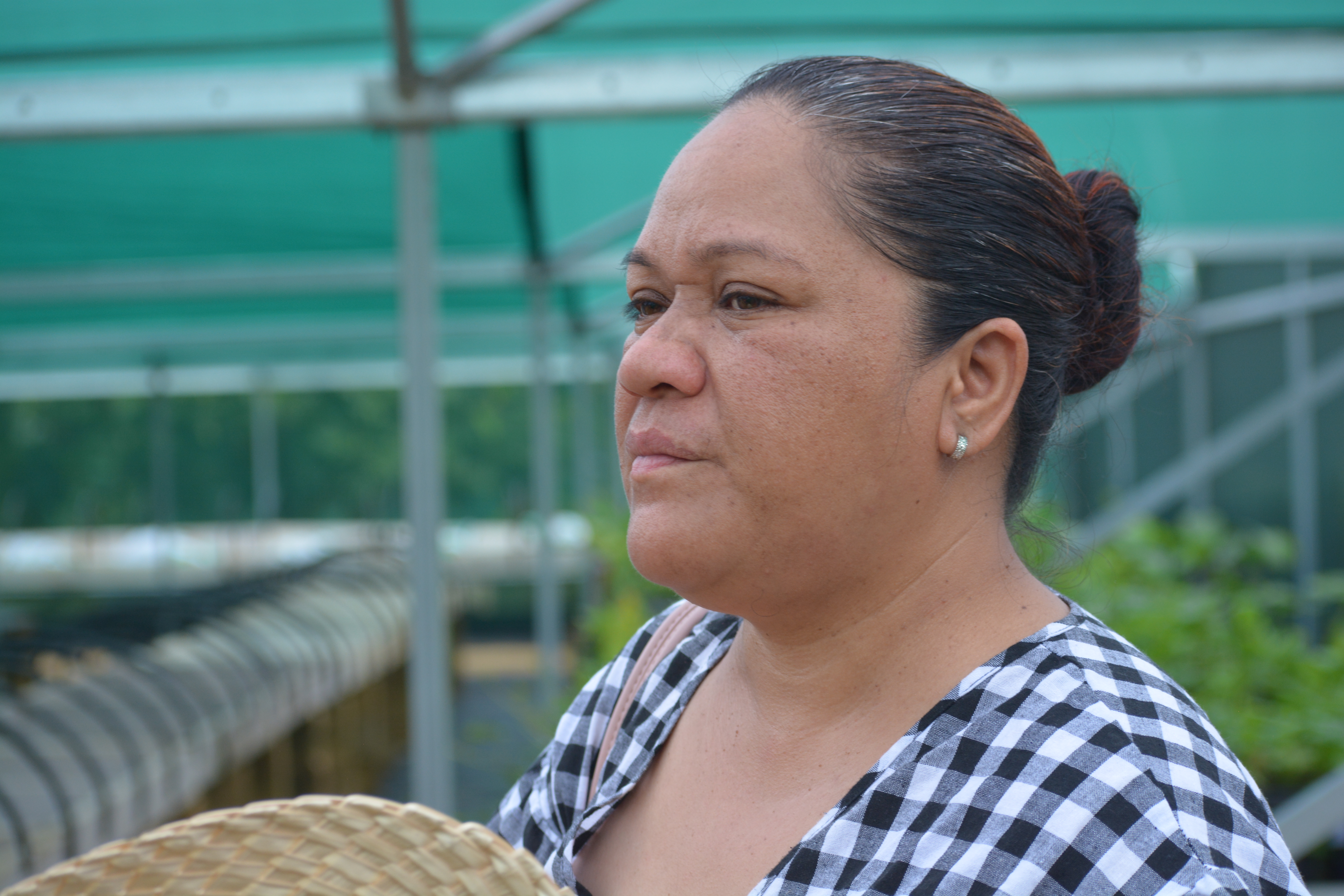
Lead of FWC Women in Development Group, Ms. Salele Oliveti.
Partnerships for Resilience
Four Organizations in Tonga: OHAI Incorporated, also known as OHAI Tonga, Tonga Community Development Trust (TCDT), Mainstreaming of Rural Development Innovation Tonga Trust (MORDITT) and FWC Women in Development Group, received funding support from the United Nations Development Programme (UNDP) Pacific Office in Fiji and its Governance for Resilient Development in the Pacific (Gov4Res) Project Small Grants Initiative (SGI). All implemented agriculture and food security focused projects and were able to come together under the initiative to share lessons and project impacts.
As part of peer-to-peer learning and sharing of best practices for SGI grantees in Tonga, a TCDT consultant trained the FWC Womens group members in home garden composting to offer a more affordable and healthier alternative to chemical fertilizers. A visit was also organized for all to view MORDITT to learn more about the climate resilient open pollinated seeds they are propagating, which are more resilient in the face of climate change impacts.
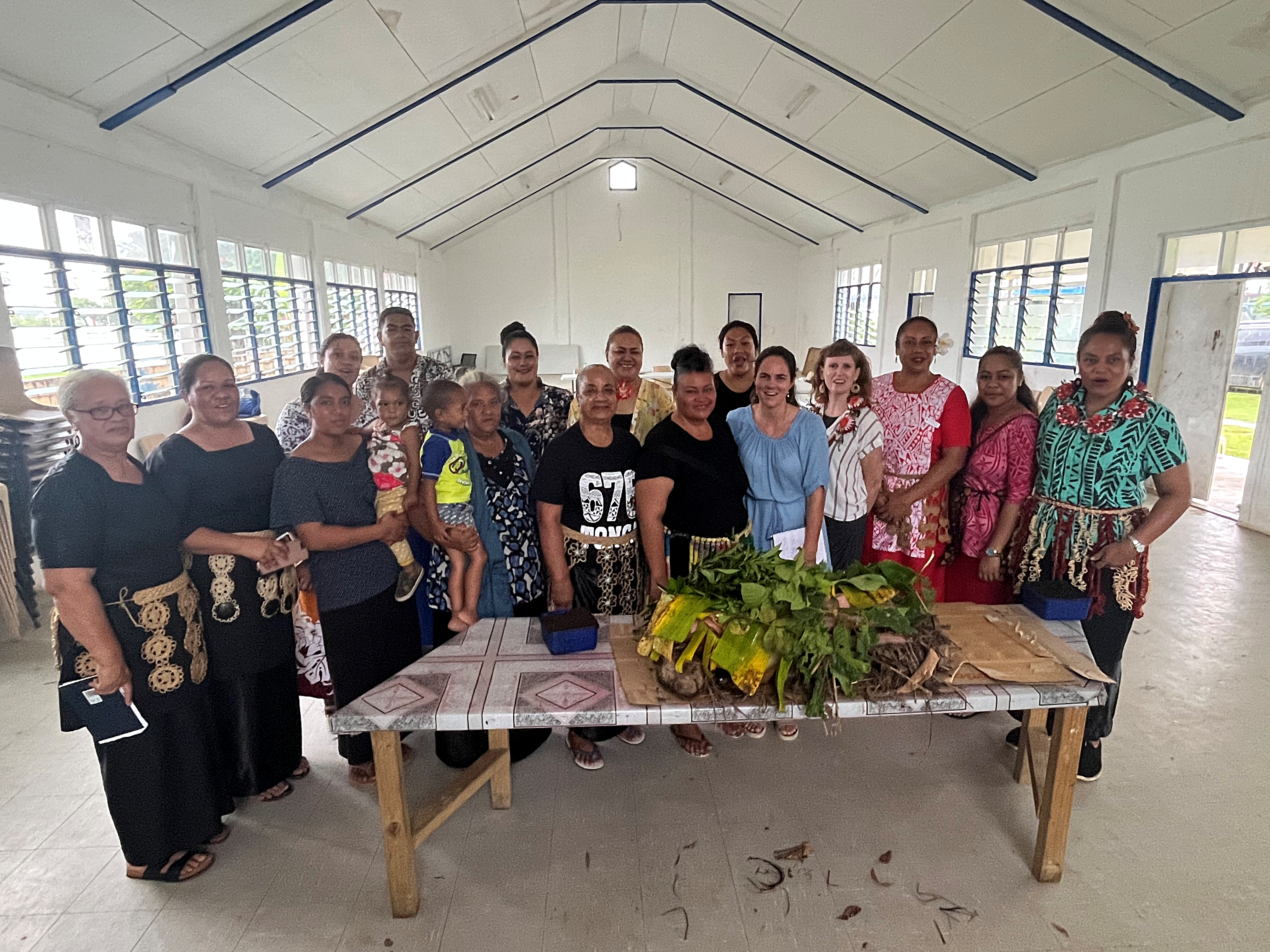
Peer to Peer learning and community practice is key for community development sustainability. The Tonga Community Development Trust provided training to the women of FWC Women in Development Group on home garden composting.
The Gov4Res SGI has been a contributor to MORDITT’s efforts to build climate and disaster resilience for communities by processing and propagating open pollinated seeds. Open pollinated seeds are adapted to local growing conditions and have evolved over time to thrive in the specific environmental conditions of the region.
“This means that they are better able to withstand drought, disease, and pests, and are more likely to produce a good harvest, even under challenging circumstances. Using open pollinated seeds allows farmers to retain control over their seed supply, rather than having to rely on expensive hybrid or genetically modified seeds that must be purchased each year, usually from overseas,” said Crystal A’ke, Monitoring, Evaluation and Safeguard Coordinator at MORDITT.
Soane Patolo, Head of MORDITT said:
“Through the assistance of UNDP Gov4Res SGI and additional funding from complementing donors including JICA, MORDITT was able to establish a fully functioning nursery to generate open pollinated seeds for the people of Tonga. MORDITT advocates for the establishment of open pollinated seed nurseries and the multiplication of these seeds, because it is sustainable and affordable for local communities.
“We were able to be flexible and after the volcanic eruption pivoted to support 90 communities with seeds and seedlings for immediate food security needs,” said Soane.
The FWC Women in Development members were some of the recipients of these seeds, to kick-start their home gardens.
Launched in August 2021, Phase 1 of the Gov4Res SGI provided small grants, ranging in value from US$5,000 to US$30,000, to 44 CSOs across seven Pacific Island Countries including Tonga, Fiji, Kiribati, Vanuatu, Solomon Islands, Tuvalu and the Republic of the Marshall Islands, to embed risk-informed practices into their projects.
This work is supported by the Australian Government’s Department of Foreign Affairs and Trade, the Korea International Cooperation Agency, the New Zealand Ministry of Foreign Affairs and Trade, the Swedish International Development Cooperation Agency, and the United Kingdom Foreign, Commonwealth and Development Office (FCDO).

 Locations
Locations




